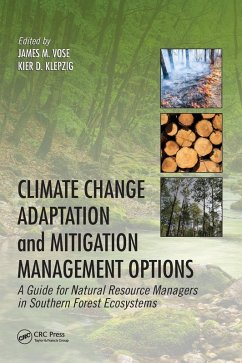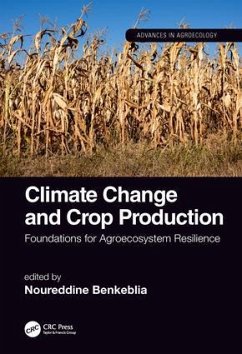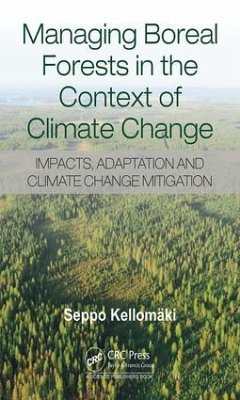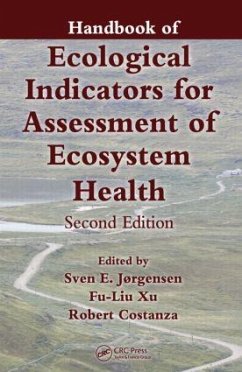
Ecological Consequences of Climate Change
Mechanisms, Conservation, and Management
Herausgeber: Beever, Erik A.; Belant, Jerrold L.

PAYBACK Punkte
116 °P sammeln!
Contemporary climate change is a crucial management challenge for wildlife scientists, conservation biologists, and ecologists of the 21st century. Climate fingerprints are being detected and documented in the responses of hundreds of wildlife species and numerous ecosystems around the world. To mitigate and accommodate the influences of climate change on wildlife and ecosystems, broader-scale conservation strategies are needed. Ecological Consequences of Climate Change: Mechanisms, Conservation, and Management provides a mechanistic understanding of biotic responses to climate change, in orde...
Contemporary climate change is a crucial management challenge for wildlife scientists, conservation biologists, and ecologists of the 21st century. Climate fingerprints are being detected and documented in the responses of hundreds of wildlife species and numerous ecosystems around the world. To mitigate and accommodate the influences of climate change on wildlife and ecosystems, broader-scale conservation strategies are needed. Ecological Consequences of Climate Change: Mechanisms, Conservation, and Management provides a mechanistic understanding of biotic responses to climate change, in order to better inform conservation and management strategies. Incorporating modeling and real-world examples from diverse taxa, ecosystems, and spatio-temporal scales, the book first presents research on recently observed rapid shifts in temperature and precipitation. It then explains how these shifts alter the biotic landscape within species and ecosystems, and how they may be expected to impose changes in the future. Also included are major sections on monitoring and conservation efforts in the face of contemporary climate change. Contributors highlight the general trends expected in wildlife and ecological responses as well as the exceptions and contingencies that may mediate those responses. Topics covered include: Description and quantification of how aspects of climate have recently changed, and may change in the future Species-level and higher-order ecological responses to climate change and variability Approaches to monitor and interpret ecological effects of climatic variability Conservation and management efforts The book discusses the quantification of the magnitude and variability in short-term responses, and delineates patterns of relative vulnerability among species and community types. It offers suggestions for designing investigations and management actions, including the long-term monitoring of ecological consequences of rapid climate change. It also identifies many of the biggest gaps in current knowledge, proposing avenues for further research. Bringing together many of the world's leading experts on ecological effects of climate change, this unique and timely volume constitutes a valuable resource for practitioners, researchers, and students.














